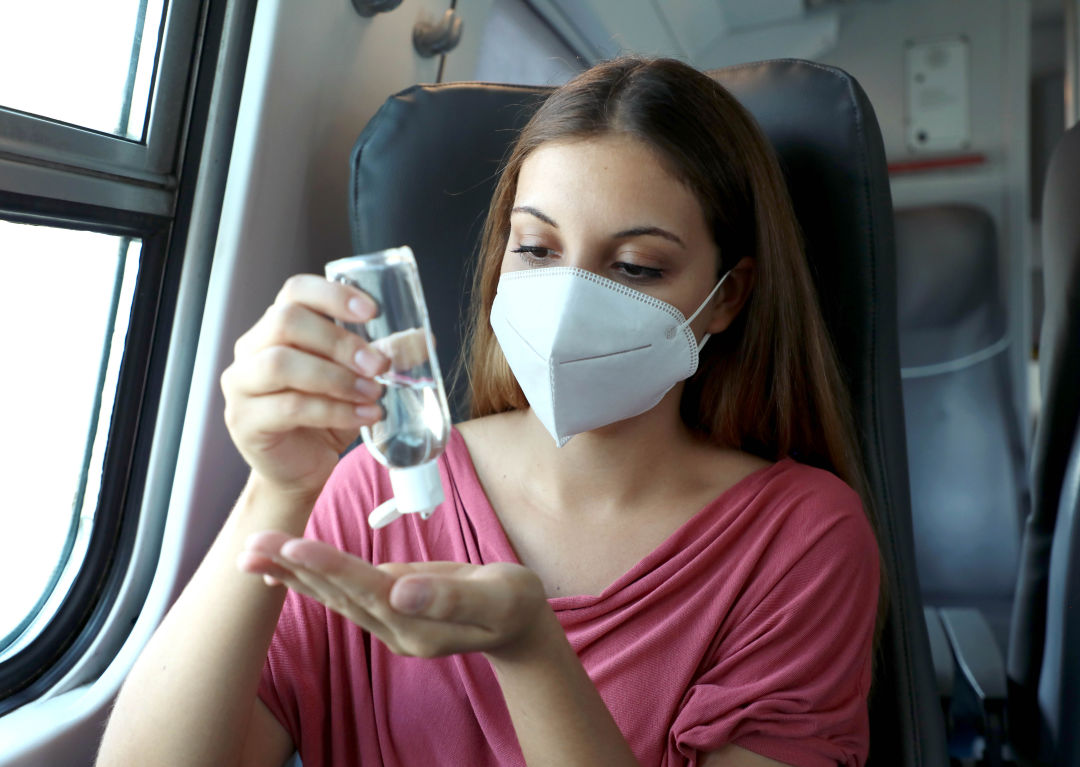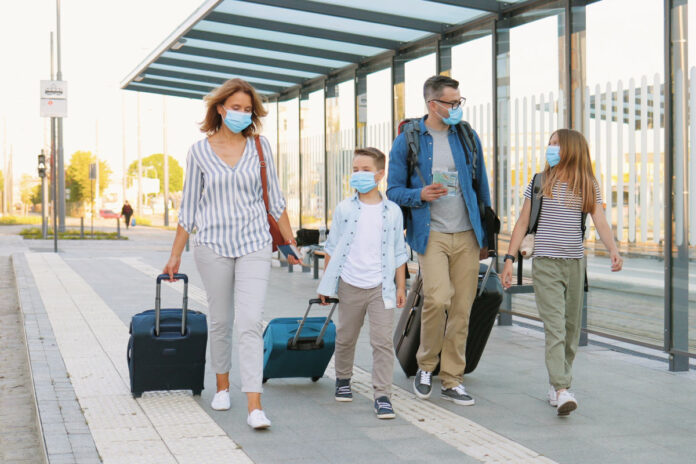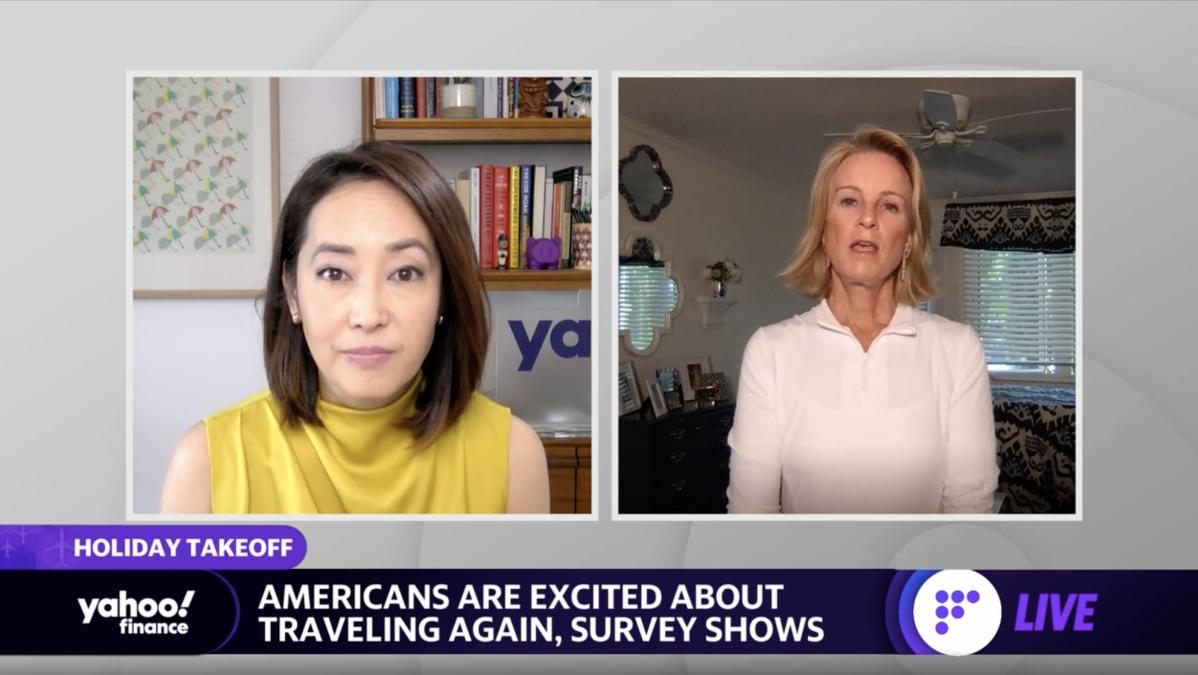Disclaimer: Luis Ostrosky, MD was also selected to our Top Doctors List for 2021.
With continuAL travel disruptions, canceled flights, and a new variant of COVID in our midst, there’s a lot to consider when planning your next getaway. As if traveling wasn’t stressful already.
“People should understand that there are certain destinations in the world currently that haven’t even started their Omicron wave or they’re barely starting,” Luis Ostrosky, MD, chief of infectious diseases with McGovern Medical School at The University of Texas Health Science Center at Houston said. “There’s going to be a lot of closures; of tourist sites and museums, and a little bit of planning goes a long way in choosing your destination.”
Dr. Ostrosky-Zeichner is a professor of medicine and epidemiology and is currently coordinating the COVID-19 response for UTHealth and its affiliated hospitals and clinics. With the help of Dr. Ostrosky, we put together a few tips that might help you plan and check off all of your to-do’s (and don’ts) before and during your journey.
Take a COVID test
It’s gotten a lot easier to obtain a COVID test, but the time it takes to get results back still varies as the Omicron variant continues to spread and the need for tests rises. And depending on where you are going, from taking a road trip to flying internationally, there are a number of guidelines to follow to ensure that you get the appropriate test. For example, if you are traveling out of the country, you will need to get a COVID-19 viral test to enter back into the U.S.– regardless of vaccination status or citizenship– and take it no more than one day before your flight. A PCR and antigen test both qualify as a viral test.
“Even if a destination is safe, there’s just so many travel disruptions, rules and regulations that you can end up stuck somewhere for two weeks without having done anything wrong,” Ostrosky said. “When you’re planning a trip, you need to really double check the testing requirements for entry [and] for departure. There’s some countries that have pretty strict quarantines so if you don’t meet those requirements, you can end up at a hotel near the airport your whole trip.”
If you need a quick turnaround time for test results, the safest bet is to use a provider that guarantees same-day or next-day results. However, these rapid tests will most likely cost extra and are not always available. You might also need to pay out of pocket because some insurance providers will not cover testing for travel.
Wear a good quality mask in and around the airport
“A lot of people are very concerned about the airplane, but actually the airplanes have pretty good airflow and it’s handled pretty safely,” Ostrosky said. “For me the sort of risky parts are the actual airports.”
While waiting in the terminal before and after flights, Ostrosky suggests travelers should be very judicious as to where to take their masks off in an airport.
“Obviously you need to take it off to eat and to drink, but ideally you should eat in more secluded areas where you’re not around a lot of people. That’s the number one scenario of getting COVID, is eating around other people,” Ostrosky said.
Another important thing is to wear the most high-quality and efficient mask you own and that you can tolerate for long periods of time.
“For some people that’s going to be an N95 and for some that can’t tolerate an N95, I recommend a double surgical or at least a single surgical mask. Turns out, cloth masks are really not that effective in avoiding transmission,” Ostrosky said.
In a study conducted last August, researchers found that surgical masks were 95% effective at filtering out virus particles, compared with 37% for cloth masks.
Do your research
When it comes to the ebb and flow of the pandemic, there are still a lot of changes that continue to affect travel across the globe. It’s important to do a significant amount of research on where you’re wanting to go before planning out your itinerary and purchasing any flights. Check your airline for in-flight policies before you leave to the airport and learn about your destination’s COVID-19 policies and procedures before departure. You can also visit the on-site testing center in IAH Terminal E.
“I think it pays off to do a little bit of research and make sure that COVID rates where you’re going are not higher than where you’re at,” Ostrosky said.

Keep hands and surfaces clean
Washing your hands after using the bathroom will not cut it these days.
“Always travel with a little bottle of alcohol gel, those are very very important. It’s portable hand washing. You should just gel frequently after touching anything in the airport, on your road trip or on your journey.”
For renting cars or checking into hotel rooms, Ostrosky suggests using microbial wipes on commonly used surfaces such as the steering wheel of the car, the doorknobs of the hotel room and any other things that would be touched frequently.
Get vaccinated or a booster
Save yourself the guilt trip of putting yourself at risk, and get vaccinated. Getting your vaccine or booster shot can relieve some of the stress that comes with traveling, especially if you know you are going to a place where you might put other people at risk. There are a number of places to find COVID-19 vaccine booster shots in Houston.
Skip the cruise
“Cruise ships are a very high risk situation, even on a good day and they’ve sort of always been a place for transmission of infectious diseases. We’ve been hearing about COVID cases on cruise ships despite vaccination requirements and despite pre boarding testing, so at this point I would say that if you have any risk factors for severe COVID, it’s really not a good idea to be boarding a cruise,” Ostrosky said.
Opt for staying local
Ostrosky suggests that at this point, if it’s not essential, don’t travel at all; and if you have to travel, consider different risk points during your journey. Lastly, there’s always the great outdoors of Houston! If you’re feeling the travel itch, but know it’s too risky, now’s the time for that staycation or outdoors activity.
“Turns out, outdoor activities are very very safe so doing things outside like parks and hiking trails; even having outdoor gatherings with your friends and family, goes a long way for positive mental health,” Ostrosky said. “So enjoy the outdoors.”















